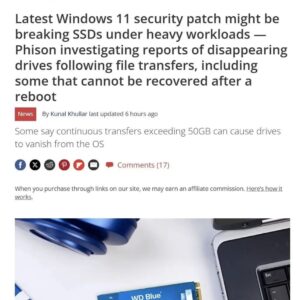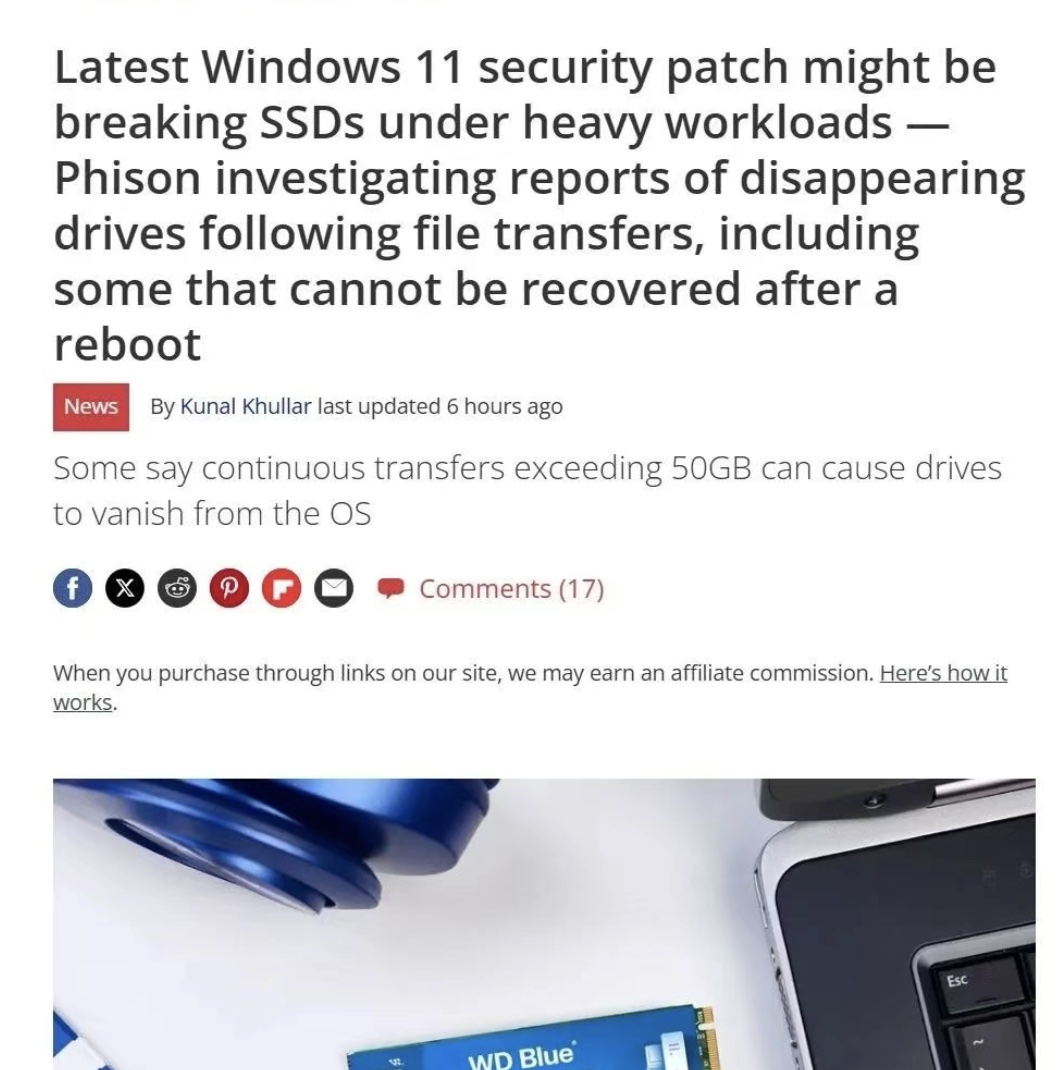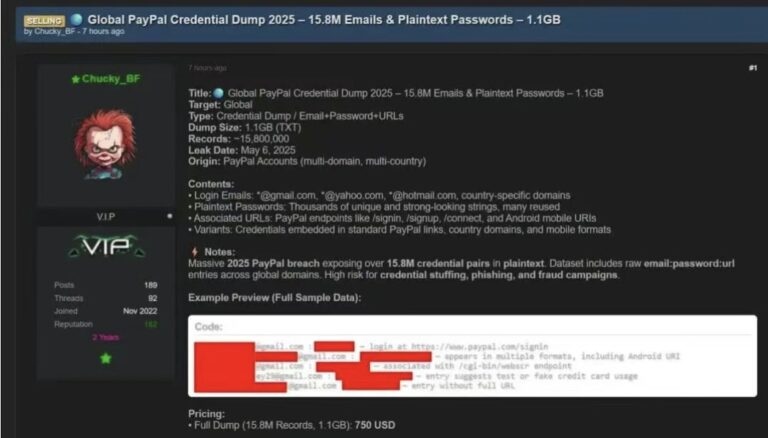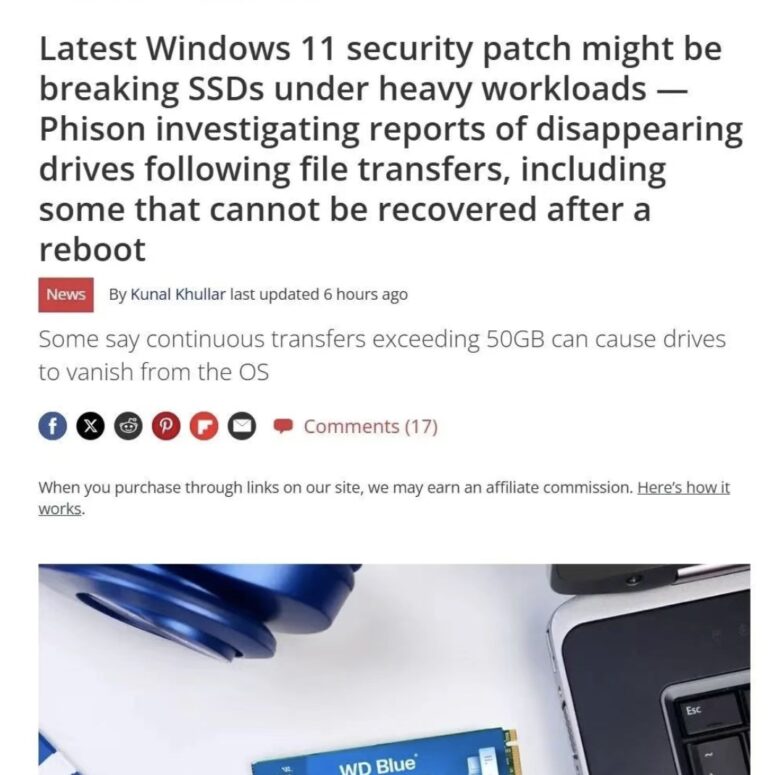The KB5063878 update for Microsoft Windows 11 and some updates for Windows 10 may cause hard drive failures, especially for solid-state drives (SSDs) and hard disk drives (HDDs).
This issue was initially discovered by a Japanese netizen. Subsequent tests found that if the hard drive writes more than 50GB of data continuously and the SSD controller usage rate exceeds 60%, the hard drive device may experience a dropout.
If there is a problem, the following situations may occur:
- File Explorer may get stuck or crash.
- SMART information cannot be read.
- I/O errors occur.
- The hard drive disappears directly.
The affected hard drives involve many manufacturers, including brands such as Corsair, Kioxia, SanDisk, and ADATA. Among them, the main controllers of some SSDs use Phison products.
The problems reported by netizens mainly focus on SSDs with Phison main controllers, especially those without DRAM cache, which are particularly serious.
Regarding the cause of the failure, the preliminary analysis is that the KB5063878 update may have introduced a cache or buffer management vulnerability at the storage stack level. This causes the system to fail to effectively handle the write queue and data refresh under long-term and large-capacity writing conditions, thereby triggering the SSD controller to lose response.
In response to this, Phison Electronics issued a statement on the 19th, stating that it will review the potentially affected controllers and cooperate with partners to continue to provide updates and suggestions to affected partners to provide support and ensure that any applicable remedial measures are implemented.
A few days ago, Phison Electronics issued another statement saying that the problem caused by this update affects the storage devices of many companies, not just Phison’s. It is working with Microsoft to solve the relevant problem.
Microsoft is also not idle. According to reports, Microsoft has confirmed that it is investigating this issue together with its partners.
Microsoft said that it is working with storage device partners to try to reproduce this problem. However, current internal tests and telemetry data have not found an increase in disk failures or file corruption rates. Microsoft recommends that affected users submit reports through the feedback center and provide detailed system information and error logs.
Porttitor cursus elementum. Bibendum magna ultricies. Tempor integer netus rutrum mauris erat sit porttitor risus. Dictumst tincidunt facilisi urna Semper imperdiet placerat conubia elit sociosqu quisque elementum commodo magna iaculis nascetur vehicula morbi convallis imperdiet enim. Hymenaeos arcu, libero per congue justo. Phasellus elit montes eu eleifend magna consequat augue nullam montes adipiscing. Gravida tempus purus Vehicula nonummy ut torquent est massa blandit id ridiculus metus mollis dignissim sem. Dis. Sociis, viverra cum ultricies vel, praesent ligula ullamcorper fermentum neque curae; nibh fusce dictum ut curae; enim bibendum mattis pulvinar porta justo curae; urna porttitor pellentesque.



















+ There are no comments
Add yours